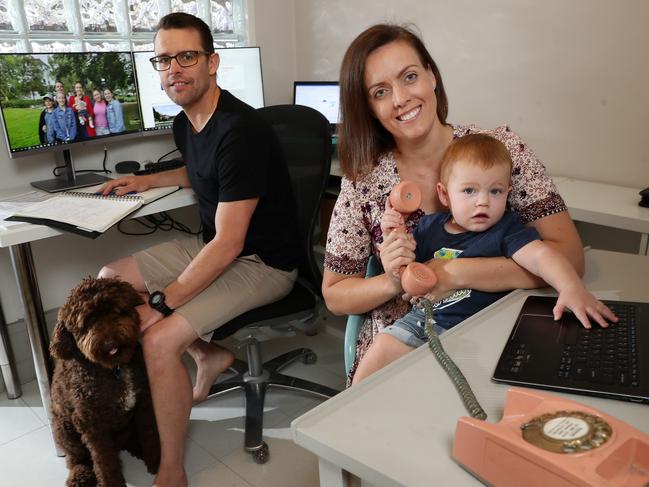How to protect yourself from cyber hacks at home
Cyber intruders are preying on the uncertainty and fear surrounding the COVID-19 pandemic but there are plenty of ways to outsmart them.
Hibernation
Don't miss out on the headlines from Hibernation. Followed categories will be added to My News.
Working remotely means keeping cybersecurity front of mind with many of us on frequent video conferencing calls – often using insecure apps which makes us more vulnerable than ever to hackers.
Attacks are carried out by sophisticated cyber-based criminal ecosystems with the ability to create new scams just as soon as others are shut down, according to the Australian Cyber Security Centre.
Office systems afford us security protection such as firewalls but at home we are vulnerable without them.
As well as attempting to steal your money, cyber criminals will also try to steal personal details, passwords and even other contact details to target colleagues, friends and family.
According to ACSC chief Abigail Bradshaw, they are receiving daily reports about different types of COVID-19 themed malicious cyber activity from different parts of the world.

These intruders prey on the uncertainty and fear surrounding the pandemic, often with phishing emails
“To keep your computer and phone safe from cyber criminals, do not click on links or open attachments that you may be sent,” she said.
Ms Bradshaw said the increase in web conferencing had also created new opportunities for cyber criminals.
“The number of Australians working from home has resulted in a sharp rise in the use of web conferencing by organisations and individuals to bridge gaps in communication,” she said.
“In deciding on a platform for teleconferencing, close attention should be paid to whether a service provider claims ownership of any recorded conversations and content, metadata, or files that are created or shared when using their web conferencing solution.
“It is also critical that organisations correctly configure their selected service to maximise the security of conversations and data.”
Belinda Roud-Hall and husband Mark Hall both work for the same commercial real estate company and conduct business from their home office.
While their employer offers cyber security updates and alerts so work devices are protected, Mrs Roud-Hall said their children’s online use was their primary concern.
“We have three teenage children homeschooling and a 20-year-old doing uni from home,” she said.
“Mark and I have secure work laptops and our IT department sends regular updates and scam alerts but our main focus for cyber security is how we manage what the kids are looking at because they’re online all day.
“We use Microsoft Family and because each child has a specific log in, we can see all their Google searches and websites they have visited. It allows us to block suspicious websites and monitor their screen time as well.”
QUICK TIPS
Originally published as How to protect yourself from cyber hacks at home



